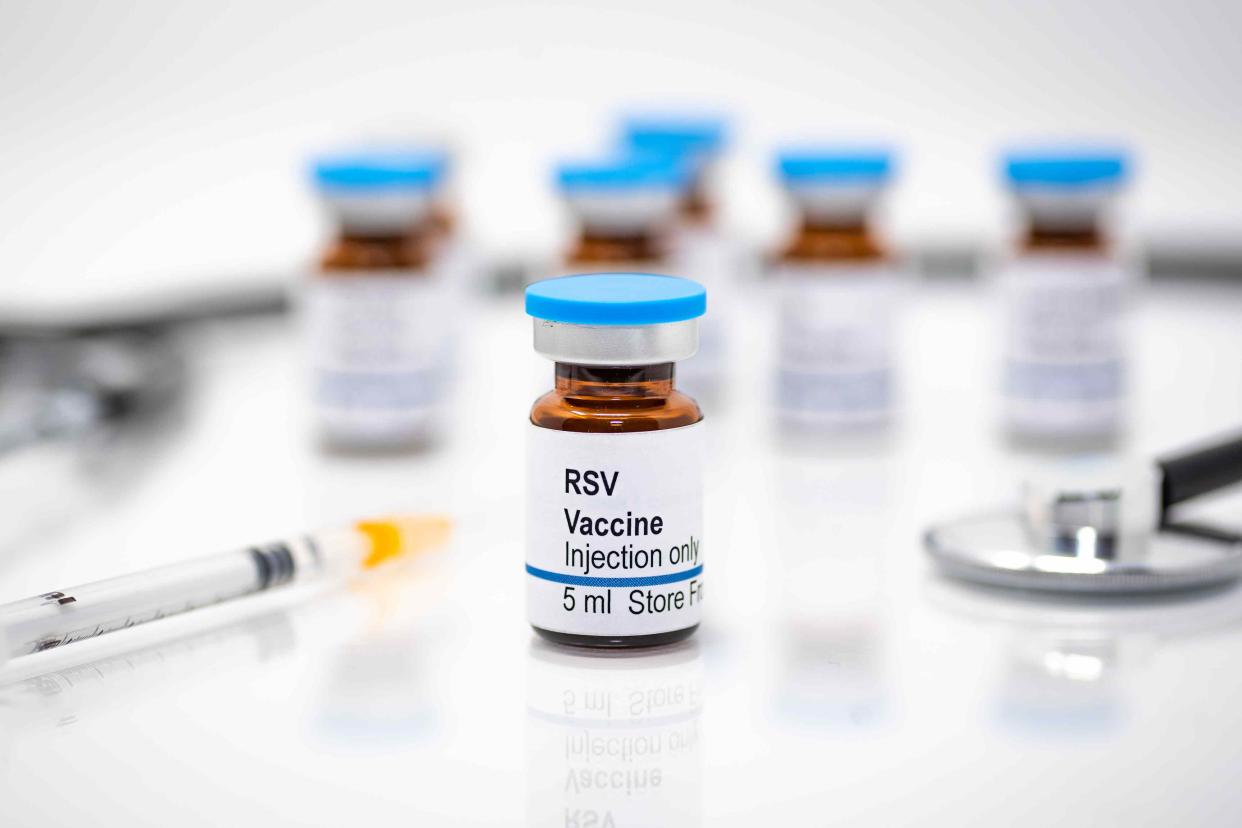What Are the Side Effects of the New RSV Vaccines?

Fact checked by Nick Blackmer
Key Takeaways
The FDA has approved two RSV vaccines for those aged 60 and up, a group that is at a higher risk of developing severe disease, hospitalization, or death from the seasonal respiratory virus.
The most common side effects reported in clinical trials were relatively mild and similar to other vaccines.
Clinical trials show these vaccines are extremely effective at preventing severe RSV in older adults.
The Food and Drug Administration (FDA) has approved two separate vaccines to prevent respiratory syncytial virus (RSV) in older adults aged 60 and up.
GSK’s vaccine, Arexvy, was the first-ever RSV vaccine to be approved in the United States when it earned approval in early May. Pfizer’s RSV vaccine, called Abrysvo, followed suit just a month later.
Both vaccines show promising results in preventing severe RSV—a highly contagious virus that causes cold and flu-like symptoms. While RSV causes mild illness in most people, it can be deadly for young children and older adults, especially those with underlying medical conditions.
Abrysvo was found to be nearly 67% effective at preventing RSV cases with at least two symptoms and 86% effective against RSV cases with three or more symptoms in clinical trials. Arexvy was reported to be nearly 83% effective against RSV infections and prevented 94.1% of hospitalizations.
The clinical trial participants reported common side effects, including injection site pain, fatigue, muscle pain, headache, and joint stiffness. Overall, these vaccines have been very well tolerated.
“Both vaccines are protein subunit vaccines, which is a technology already well known to us and contains a harmless version of a protein found on the outside of the virus,” said Hannah Nam, MD, an infectious disease specialist and assistant professor of clinical medicine at the University of California, Irvine.
The FDA noted that 10 cases of atrial fibrillation (irregular heart rhythm) were reported among Arexvy recipients within a month of vaccination, compared to four in the placebo group. Each group had approximately 12,500 participants.
A few cases of autoimmune syndromes were observed among Arexvy recipients. Two patients developed a neurological disorder called acute disseminated encephalomyelitis after receiving influenza and RSV vaccines together at the same time, though researchers aren’t sure whether either or both vaccines were the cause. There was also one case of Guillain-Barré syndrome, a rare neurological disorder that occurs when the immune system attacks its own nerves.
For Abrysvo, one case of Guillain-Barre syndrome and one case of Miller Fisher syndrome—a rare variant of Guillain-Barre syndrome—were reported out of the 19,000 individuals that received the vaccine.
“While both were rare events and have happened with other vaccines and infections, including the RSV infection as well, it is something that the FDA has asked the companies to study further,” Nam said.
Many vaccines—including the flu shot and the Johnson & Johnson COVID-19 vaccine—can cause GBS as a rare side effect, according to Renuga Vivekanandan, MD, an associate professor specializing in infectious disease at Creighton University's School of Medicine.
But that doesn't mean there's cause for concern, she said, as the cases of GBS were very few. The typical protocol when a rare side effect is observed, she explained, is for the FDA to continuously monitor and collect data on vaccine side effects, which is what is being done with these RSV vaccines. There is also a vaccine adverse event reporting system (VAERS) where these cases can be reported.
"The vaccines have been approved after large trials with good outcomes to reduce severe disease in patients who might be at a higher risk for developing severe RSV infection," Vivekanandan told Verywell. "The best practice would be having an informed discussion with a primary care provider and making a collaborative decision.”
The CDC estimates that RSV is responsible for at least 177,000 hospitalizations and 14,000 deaths among U.S. adults each year, and these vaccines have the potential to save thousands of lives during flu season each year.
What This Means For You
If you or someone you love is over the age of 60, speak with your health care provider about whether one of these RSV vaccines is right for you once they’re released later this year. These vaccines are considered safe and effective when it comes to preventing severe illness, hospitalization, and death from RSV in older adults.

